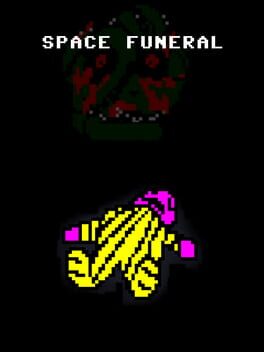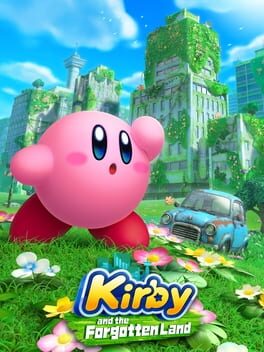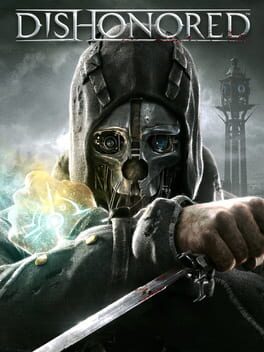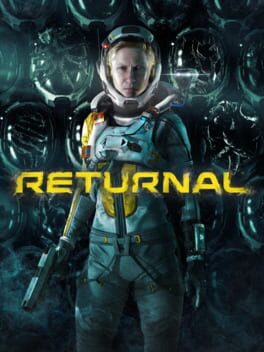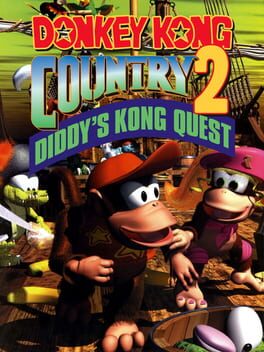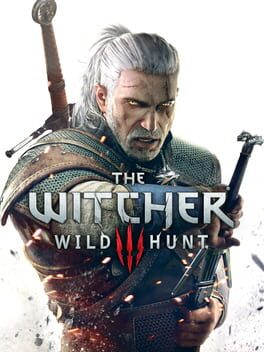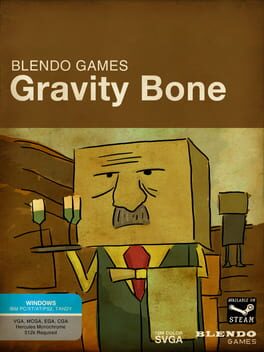sam_gray
2019
More so than any other Hideo Kojima game, this sees a divide between his talents as a video game developer and his original aspirations to be a film director. As a developer, I don't think he's ever been better. The gameplay loop is fantastic, creating a lonely world to be explored and populated by the ghosts of other players. The physics of parcel carrying are gratifyingly complex, and the environmental design is organic enough to make every journey and route feel original without ever becoming overwhelmingly dull or lacking in variation. The boss fights are unnecessary, but I think Kojima knows this - as it's such a leap into new territory, some elements of third-person action game design have been retained as a kind of compromise, to entice players who would never play an "art house" game.
Cinematically, it's more of a mixed bag. Along with Avatar: The Way of Water, it's certainly some of the most interesting use of motion capture I've ever seen. Léa Seydoux and Margaret Qualley are incredible, using their unique screen talents (Qualley used to be a ballerina, Seydoux is perhaps the most exciting actress to emerge in the past decade) to lean into the peculiarities of the process - treating it like black box theatre. And then there's Nicolas Winding Refn, giving an absolute void of a performance as Mr. Exposition, and Lindsay Wagner, whose thanklessly boring character the entire narrative hinges on. The Metal Gear games were appealingly episodic in their narratives, gaining a lot from the incongruous comparison between them and the American action movies that inspired them. Death Stranding is at its strongest in its early, individual character-focused chapters, but at a certain point it gets too lost in its own mythology, and Kojima's penchant for dream sequences overwhelms to the point of incomprehension. Still, easily the most singular and inspired game of its console generation. Bring on the sequel.
Cinematically, it's more of a mixed bag. Along with Avatar: The Way of Water, it's certainly some of the most interesting use of motion capture I've ever seen. Léa Seydoux and Margaret Qualley are incredible, using their unique screen talents (Qualley used to be a ballerina, Seydoux is perhaps the most exciting actress to emerge in the past decade) to lean into the peculiarities of the process - treating it like black box theatre. And then there's Nicolas Winding Refn, giving an absolute void of a performance as Mr. Exposition, and Lindsay Wagner, whose thanklessly boring character the entire narrative hinges on. The Metal Gear games were appealingly episodic in their narratives, gaining a lot from the incongruous comparison between them and the American action movies that inspired them. Death Stranding is at its strongest in its early, individual character-focused chapters, but at a certain point it gets too lost in its own mythology, and Kojima's penchant for dream sequences overwhelms to the point of incomprehension. Still, easily the most singular and inspired game of its console generation. Bring on the sequel.
2015
I really tried with this, and I can see why some find it so charming - the sidequests have an amusing, inventive wit, and the typical life-of-crime, fall & rise set-up is intelligently shaded. But there's also way too much time spent watching cutscenes, and the snippets of gameplay we get aren't quite compelling enough to make it worthwhile. The tactics in the brawls just boiled down to mashing buttons and occasionally using an unlimited supply of healing items. There's no tension to it. And the side bits - karaoke, flirting with the bowling receptionist, Mr. Shakedown - are fine, but heavily compartmentalised, like everything else. I wasn't expecting GTA, but there's a lack of flow here that I found unproductively claustrophobic. Will revisit down the road, maybe.
2019
This isn't entirely the game's fault, which plays well and makes good use of vertical movement, but I'm not particularly into this strain of indie games that posit themselves as aggressively nice - perhaps as a response to years of aggressively nasty AAA titles - at the expense of anything negative that might break the spell. The lower-caps, self-aware dialogue felt cutesy instead of human. Give me more moments like the rain-soaked graveyard, or the perilous journey through the snow, and maybe the self-congratulatory ending might feel less hollow.
2010
Kirby by way of 3D Mario, replacing scattered power-ups with RPG-lite upgrades, some of which are ludicrously overpowered (the big sword that blocks all damage?) and others being simply, enjoyably ludicrous (a kind of suicide vest, duel-wielding pistols). Reasonably fun and imaginative, even if it rips off Mario Odyssey with the inanimate object possession and incongruously “realistic” setting, and shares that game’s same problem of over-cluttered busyness. Both suffer from the degradation of a corporate brand that once felt strange and singular (Kirby Super Star felt like it had been developed under the influence of LSD) and has now had the edges sanded off to appeal to a broader market. Also Kirby just isn’t as much fun to control as Mario, though he (?) is cuter, and this is the first mainline game in the series I’ve played that doesn’t feel insultingly easy. The boss fights might repeat themselves too much but there’s a care taken with attack variety and telegraphing that (hilariously) evokes Dark Souls, Kirby’s slow-mo dodge being an improbably cool cherry on that particular cake. My favourite in the series is still the golf one (Dream Course) - not sure if that’s controversial...
2012
Glad that the whole "binary moral choice" trend has died down, because it's a mistake here. I felt compelled to hinder myself and play the game in a less fun, non-lethal fashion up until the betrayal, at which point I thought it might be interesting to start killing people. Didn't matter - I still got the lame ending where everything is roses and all the robot people love you. It's a credit to the sturdy blink mechanic and open-ended map design that I still liked this game.
2021
A roguelike bullet hell-fusion that I blamed at first for having an intense difficulty based on luck. But it’s really about risk management. You could keep exploring for that perfect gun and perk, but what if you run into a difficult enemy that sets back your precious health bar? You could risk a malfunction that handicaps you in a negligible way, but what if it’s terminal? Very demoralising to play for long periods of time, as every death stings - and unlike Dark Souls, there’s no easy route back to a boss, demanding your full concentration on every run. Also a brilliant, complicated system with no wasted parts, rewarding experimentation and attention to detail. Ends weak, and I wish it didn’t even bother with a narrative, with the stilted horror sequences and ultimate reveal that it’s all a dream or about trauma or something taking the bloom off the rose a bit.
2016
In some ways I think this suffers from being Ueda’s most conventional game: the idea is borderline Pixar, there’s a terrible didactic voiceover, and even the score sounds distractingly like Thomas Newman. On the other hand, every bit of frustration and jank is brilliantly incorporated into the game’s design, which takes the most mocked of video game objectives (the escort quest) and takes it to gigantic, spectacular heights, with one of the most convincing companion AIs ever devised. Also found the part where Trico thinks you’re (spoiler) so emotionally affecting I had to stop playing for a while. Which never happens.
I gave up on Donkey Kong Country somewhere around the ice levels, though I'd been tempted to all the way back at the first minecart hellscape. Catching the player by surprise with a precise jump or off-screen enemy they have no time to prepare for is old-school sadism, aimed at people who'd rather memorise a layout than question its design. I've got no patience for it.
This, on the other hand, is a gem. It makes the small but significant change in its design philosophy that the player should be prepared for the challenges they have to face. So each level tells you how to play it at the start, then slowly ramps up the difficulty so you have only yourself to blame for mistakes. On a macro level, the difficulty increases steadily as well - the game builds on its own architecture while constantly throwing in new surprises. And thank God for Trixie Kong. Her flutter is a game changer, especially with the emphasis on vertical levels. Though it should be said that the two partners feel balanced this time, instead of cumbersome Donkey Kong dragging down his own game.
I still have a few issues with the shaded graphics, which sometimes make confusing e.g. what is and isn't a ledge. But in every way - not just gameplay-wise but musically, stylistically - it's a terrific improvement.
This, on the other hand, is a gem. It makes the small but significant change in its design philosophy that the player should be prepared for the challenges they have to face. So each level tells you how to play it at the start, then slowly ramps up the difficulty so you have only yourself to blame for mistakes. On a macro level, the difficulty increases steadily as well - the game builds on its own architecture while constantly throwing in new surprises. And thank God for Trixie Kong. Her flutter is a game changer, especially with the emphasis on vertical levels. Though it should be said that the two partners feel balanced this time, instead of cumbersome Donkey Kong dragging down his own game.
I still have a few issues with the shaded graphics, which sometimes make confusing e.g. what is and isn't a ledge. But in every way - not just gameplay-wise but musically, stylistically - it's a terrific improvement.
So conceptually brilliant it doesn't really require explanation - it distils everything that's good about 30-odd years of Zelda (and Dark Souls, and Shadow of the Colossus, and the Elder Scrolls, etc, etc) and does away with almost everything that's unnecessary. Maybe lacks the weirder edges of Majora's Mask or Twilight Princess, but that's why sequels exist. The barebones story is even rather moving, especially the hunt for memories - it reminded me of something like BS Johnson's The Unfortunates, scattered pieces of a puzzle whose incompleteness is the point. It ends in a place of hope, but acknowledges the sacrifices and failures that paved its way. Which is rare, even for a franchise as thoughtful as this.
2001
A game about architecture, first and foremost, with the camera either positioning itself at the best angle to reveal the space, or making it clear to the player that they have to explore the offscreen space. Not exactly a masterpiece - the puzzles are sometimes perfunctory, and the combat is actively annoying - but there is something stirring about the hand-holding mechanic, the controller vibrating with Yorda’s every movement. She’s a fragile, real presence, with the standard “escort quest” frustrations - get over here, do that - a conscious part of the experience. (There’s a psychosexual triangle to be drawn between the virginal Yorda, the jealous mother, and possessive teenage boy Ico, whose “horns” are eventually removed/castrated.) All of which to say I found the ending very powerful. The castle we’ve grown so familiar with crumbles, and the power dynamic between the pair reverses - we are made helpless by a beautifully-scored cutscene, the untranslated farewell a perfect note to end on. (The epilogue is a mistake.) Clearly inspired many a developer to make their game as pretentious as possible, though Hidetaka Miyazaki would take the ball and run with it with Boletarian Palace.
The most fun to be had is definitely in the early stages, after you've accepted the awkward combat, animations, character models, writing, etc. A powerful video game hero brought low by using their detective powers to help local townsfolk in oddball mysteries: fine. Fun, even. But the game gradually discourages this by assigning levels to quests, keeping you on the rails of the main plot. And Jesus Christ, what a slog. No wonder most don't even finish it.
It's not like the pursuit of the MacGuffin-y missing person is an uncommon plot device. But this is hardly The Searchers - it's a wild goose chase. I haven't played the previous two games, so it's possible there's an emotional element I'm missing - although as far as I'm aware, Ciri and Yennifer don't even appear in those, as Geralt suffers from amnesia. Perhaps the point is that our main character has finally pieced together his life, and needs that illusive final piece to feel whole again.
But where is that in the writing? There's so much of it here, so much stuff, and almost none of it amounts to anything. Sure, you can get a different cutscene here, a romance there, but the nature of the game is that it wants to flatter you at every turn, give you a chance to try everything. That is, unless you don't play catch enough with your boring daughter - a moral choice that doesn't announce itself as such, which could be bold if there was any attempt at complex human psychology. But no: getting the "bad" ending is a "gotcha!", a conservative scolding that punishes you for supposedly thinking of yourself as the hero, even though the game encourages that line of thinking with Geralt's increasingly cop-like domination over quests with very limited outcomes.
The characters move like mannequins - they repeat themselves, they phase through each other, they whine and curse but seldom feel particularly real. They're all part of the game's arrogance, which uses constant cutscenes and a sat-nav of a minimap to make sure the player does everything they're supposed to. And even if they do, the game might crash or bug out. I'm not surprised that Cyberpunk is bad - this seems to be the accepted state of the open world by this point, something that tells the player to stand in awe of its grand design while resolutely underwhelming on a moment-by-moment basis; until the sloppiness becomes accepted, even routine.
One final thought: what is going on with all the female character designs? It's so blatantly misogynistic that I'm almost surprised there wasn't more uproar. The female soldier who gets told off for continually wearing her blouse open - what is this, the 1960s? Rancid.
It's not like the pursuit of the MacGuffin-y missing person is an uncommon plot device. But this is hardly The Searchers - it's a wild goose chase. I haven't played the previous two games, so it's possible there's an emotional element I'm missing - although as far as I'm aware, Ciri and Yennifer don't even appear in those, as Geralt suffers from amnesia. Perhaps the point is that our main character has finally pieced together his life, and needs that illusive final piece to feel whole again.
But where is that in the writing? There's so much of it here, so much stuff, and almost none of it amounts to anything. Sure, you can get a different cutscene here, a romance there, but the nature of the game is that it wants to flatter you at every turn, give you a chance to try everything. That is, unless you don't play catch enough with your boring daughter - a moral choice that doesn't announce itself as such, which could be bold if there was any attempt at complex human psychology. But no: getting the "bad" ending is a "gotcha!", a conservative scolding that punishes you for supposedly thinking of yourself as the hero, even though the game encourages that line of thinking with Geralt's increasingly cop-like domination over quests with very limited outcomes.
The characters move like mannequins - they repeat themselves, they phase through each other, they whine and curse but seldom feel particularly real. They're all part of the game's arrogance, which uses constant cutscenes and a sat-nav of a minimap to make sure the player does everything they're supposed to. And even if they do, the game might crash or bug out. I'm not surprised that Cyberpunk is bad - this seems to be the accepted state of the open world by this point, something that tells the player to stand in awe of its grand design while resolutely underwhelming on a moment-by-moment basis; until the sloppiness becomes accepted, even routine.
One final thought: what is going on with all the female character designs? It's so blatantly misogynistic that I'm almost surprised there wasn't more uproar. The female soldier who gets told off for continually wearing her blouse open - what is this, the 1960s? Rancid.
2008
2020
The premise implies a procedural whodunnit, à la Phoenix Wright, but it's actually much stranger than that - it's closer to an open-world collect-a-thon, though one where almost every item is important, a key puzzle piece in an overarching mystery. Or rather several, interlinked mysteries; a multiple homicide and missing person at first, then followed by matters of break-ins, sacrifices, genealogy, demonic possession, fanaticism, and every suspect bearing a secret that may or may not implicate them in all of the above. Combine this with the Pynchonian naming conventions (Kafka Memory, anyone?), the vaporwave soundtrack, and a surfeit of red herrings to add flavour, and you have a very strange game, the type of which I've never really encountered before. Compared to Phoenix Wright, the immediate appeal is the freedom. You can visit the suspects in any order, revisit them with new evidence and testimony to uncover a fresh angle, or just keep exploring a gorgeously designed world map. It uses the uncanny nature of a lifeless game world to tie into its theme of religious hubris - the powerful rich using the powerless poor to create their own fantasy of perfection is given an effective, literal analogue here, and the writing is intelligent enough to trust us to understand this without pressing the point too hard. The main issue is that this all becomes clear within the first half of the game, and because of the player-created structure there isn't the same kind of momentum as a traditional whodunnit - the only tension is whether you can hoover up the last bits of evidence. And the trial is a big disappointment, too, especially given how it set up a difficult situation regarding sympathetic (but not blameless) participants in the crime, then sweeps any complications in character relationships under the rug with a truncated epilogue. Still, one of the most ambitious games of recent times - I can't imagine I'll forget it any time soon.



